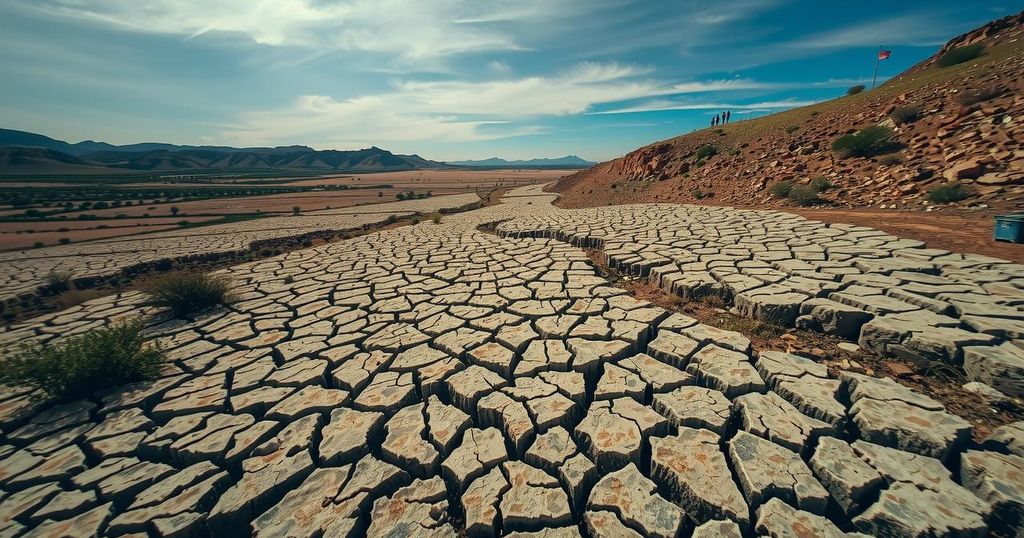Water Shortages Declared a New Normal in Johannesburg, South Africa
In South Africa, particularly in Johannesburg, residents are grappling with severe water shortages exacerbated by high demand, infrastructure challenges, and climate change effects. Protests have erupted over ongoing outages, while authorities implement restrictions to manage consumption rates and prevent resource depletion. Urgent improvements and reforms are necessary to address the crisis and ensure reliable water access.
In the Johannesburg township of Tembisa, water shortages have recently become a troubling norm as residents like Joyce Lakela, who owns a nursery, find themselves in distressing situations while searching for water. Lakela notes, “It’s been going on for five days,” as she and her community face prolonged outages now coinciding with the peak of summer when demand is rising. The City of Ekurhuleni has instituted daily water restrictions to manage what it perceives as excess consumption, alongside necessary maintenance efforts. While water reserves nationwide remain adequate, the practical experience for many residents is marked by sporadic water access, with taps remaining dry for prolonged periods. The situation has incited protests from frustrated residents in areas such as Westbury and Westdene, where demonstrators have taken to the streets, burning tires and blocking thoroughfares to voice their grievances against the ongoing water crises. Essential services, including at least one hospital, have also been disrupted due to diminished water supply, exacerbating community concerns. Rand Water, the primary water supplier for Gauteng, recently issued warnings regarding high consumption rates, advising municipalities to impose usage limits to avert potential depletion of water storage reservoirs. Notably, the African National Congress also cited higher water loss rates due to leaks and unauthorized connections, estimated at over 40% in Gauteng, as contributing factors. Craig Sheridan from the University of the Witwatersrand highlighted issues surrounding neglected infrastructure: “We’re not replacing anywhere near as much infrastructure as we should be.” Corruption and mismanagement among municipalities were identified as significant hindrances to efficient water service delivery, as asserted by water expert Chris Herold. Despite municipalities’ reassurances of efforts, accusations persist regarding inadequate support from utility providers, with delays in plans to enhance water supply through international pipelines further complicating the situation. A project to boost bulk water supply from Lesotho, which was initially slated for completion in 2018, is now projected to be finished in 2028. Concerns are heightened about the long-term implications of climate change, which poses significant threats to South Africa’s water supply and availability, with forecasts predicting a potential 25% drop in precipitation by century’s end. Authorities have emphasized the importance of immediate behavioral changes among citizens to avert stricter regulations, while health risks from alternating water systems present further challenges for communities reliant on safe water access.
South Africa is currently facing a critical water crisis, primarily due to a combination of factors including aging infrastructure, mismanagement by municipalities, and the effects of climate change. Johannesburg, one of the largest cities, has been severely impacted, with residents frequently facing water outages exacerbated by rising temperatures and increased demand during the summer months. The situation has led to public unrest and protests as communities struggle to secure basic necessities. Understanding the geographical and climatic context of South Africa is vital to comprehending the severity of the water shortages and the responses from authorities.
The ongoing water shortages in South Africa highlight a pressing need for improved infrastructure, management of resources, and accountability among municipalities. As residents endure the consequences of prolonged outages, the urgency for reform is evident. With climate change further complicating water availability scenarios, a collective response from both authorities and citizens appears essential to mitigate these challenges effectively.
Original Source: www.seychellesnewsagency.com




Post Comment